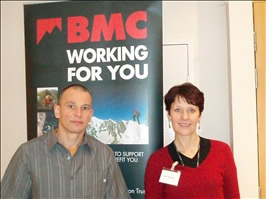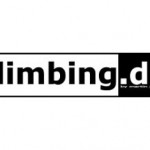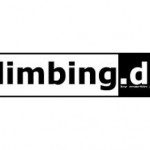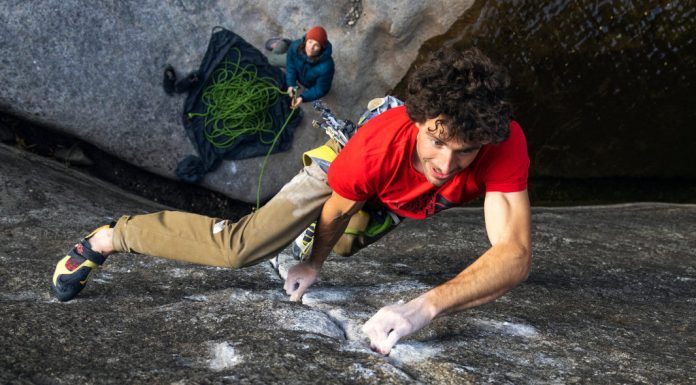 The event was oversubscribed with a long waiting list. It was clear that the demand is great, and the BMC are already looking at ways to repeat this sort of event in the future.
The event was oversubscribed with a long waiting list. It was clear that the demand is great, and the BMC are already looking at ways to repeat this sort of event in the future.
The talks and workshops were given by a glittering array of professionals – surgeons and doctors (specialising in hands, feet, ankles, knees or shoulders), a physiotherapist, biomechical podiatrists, a national climbing coach, strength & conditioning specialist and a nutritionist.
The event attracted a range of people from doctors and physios to recreational and elite climbers. Everyone went away having learnt something new and eager to continue the process. In addition, everyone received 10 units of Continued Professional Development (CPD) as the symposium was officially recognised and accredited by the Royal College of Physicians of London.
We were extremely fortunate to be able to present the foremost expert in climbing related injuries in the world, Volker Schöffl from Germany, as the keynote speaker who gave a number of immensely important and erudite presentations on the themes of the medical aspects of sport climbing and injury statistics, the biomechanics of the hand, finger injuries in rock climbers, long term consequences of rock climbing on the hands, ice climbing injuries and shoulder injuries, as well as delivering a taping workshop.
The symposium was opened by BMC President Rab Carrington who cordially welcomed everyone and set out the aims for the weekend.
The Symposium was organised in the BMC office by Kate Anwyl, conceived and planned by Audry Morrison in conjunction with the BMC who also gave presentations on the physiology of climbing, nutritional considerations in rock climbing and how the developmental need of dedicated young climbers differ from adults. Dave Binney, team GB coach for junior and senior squads for 10 years, also gave a presentation on maturation and windows of opportunity and how they might impact on injury prevention.
BMC Honorary Medical Advisor, Dr David Hillebrandt gave presentations on practical first aid at the crag, as well as giving details of the Mountain Medicine course (the UK Diploma of Mountain Medicine at Leicester University) and Chairing the Scientific Poster presentations, where researchers gave presentations and answered questions about their current projects.
Upper limb and finger injuries are well known in climbing, but this was the first event to additionally highlight the problems of the lower limbs and feet. Steve Bollen was first person to characterise A2 finger pulley injuries in climbers in the 1990's and published many papers on such injuries.For this event he focused on the knee, as his special area of interest is ACL reconstruction (anterior cruciate ligament). Steve looked the implications of rockovers, high steps, meniscus tears, and surgical interventions. Mark Davies from Northern General Hospital in Sheffield knowledgeably discussed foot and ankle trauma in climbers.
All the surgeons giving talks agreed that climbers are generally highly motivated patients, and that their treatment may require a slightly different approach to get them back climbing. The trouble for many climbers is sometimes accessing such help, highlighting again the need for the weekend symposium.
Well-known climber, Gary Gibson (also a NHS podiatrist), and Robert Hilditch (biomechanical podiatrist) combined their efforts to give a presentation on their fascinating research into the biomechanics of the climbers' foot using state of the art imaging techniques.
Senior lecturers from Sheffield Hallam University also gave talks – Dave Hembrough spoke about strength conditioning for climbing. Alison MacFarlane (formerly climbing team GB physio) also gave an engaging presentation with “volunteers' on Sports Physiotherapy and Climbing. Alison approach views the body as an integrated kinetic chain and highlighted that the site of pain might not actually be where the problem is coming from.
On Saturday evening, world elite rock climber Steve McClure led a practical climbing session at the Edge Climbing Centre where many of the delegates were simply glad to be doing something physical after all that brain work. British Junior Team Manager, Ian Dunn, led a similar session on the Sunday evening.
After the evening meal on Saturday Volker gave an interesting and entertaining slideshow about Rock Climbing in Laos.
All things considered the Sympoium was felt to be a great success. Here's a selection of the very many quotes the BMC has received about the event:
- I can honestly say that it was one of the best presentations I have ever attended. The whole course and speakers made the relevant medical and physiological connections to the climbing sport. As a very active climber and the senior climbing instructor … I shall certainly review and implement new training techniques and information sharing especially for the children's climbing club.
- just wanted to let you know that I thought the symposium was brilliant, really well organised with lots of interesting talks by very approachable and knowledgable speakers. I felt it was brilliant value for money; and really appreciate the free book as well.
- I attended the climbing injuries symposium this weekend in Sheffs, class act, Volker Schöffl, what a legend, organised and I imagine at least moderately subsidised by the BMC but money very well spent. Thanks very much BMC!
BMC says thanks… The BMC would like to thank the following: everyone who gave presentations, led workshops and helped out on the day. Without all their generous contributions an event like this simply couldn't take place. Special thanks too to Lyon Equipment UK (distributors for Petzl in UK) who sponsored the Petzl book One Move too Many… that was given to each delegate.The book is a seminal work on climbing injuries. The management and staff of the Edge Climbing Centre and the Showroom complex in Sheffield who were very accommodating, helpful and hospitable.


![[VIDEO] Alexander Megos: URSUS | The days after the send URSUS | The days after the send (c) Alexander Megos](https://www.climbing.de/wp-content/uploads/2024/03/youtube_WCZVR9-tZTc-218x150.jpg)

![[VIDEO] Stefano Ghisolfi: ALL my secrets about ENDURANCE Stefano Ghisolfi: ALL my secrets about ENDURANCE (c) Stefano Ghisolfi](https://www.climbing.de/wp-content/uploads/2024/03/youtube_xlQ2OreHL60-218x150.jpg)
![[VIDEO] THE FULL JOURNEY 9B FA by Alexander Megos THE FULL JOURNEY 9B FA by Alexander Megos (c) Alexander Megos](https://www.climbing.de/wp-content/uploads/2022/12/youtube_QwjykRehg7M-218x150.jpg)
![[VIDEO] MEGATRON V17 MEGATRON V17 (c) mellow](https://www.climbing.de/wp-content/uploads/2022/12/youtube_f_MniTA8MYU-218x150.jpg)
![[VIDEO] Moulin Rouge (7b) Free Solo | Jonas Hainz Moulin Rouge - Free Solo (c) Jonas Hainz](https://www.climbing.de/wp-content/uploads/2022/10/youtube_UQs4KNRBHss-218x150.jpg)

![[VIDEO] Adam Ondra in zwei 8C Bouldern](https://www.climbing.de/wp-content/uploads/2014/12/vimeo_34171412-150x150.jpg)










